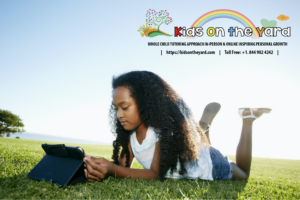|
Audio Article
|
Fourth-grade math focuses on addition, subtraction, division, and multiplication. Students apply the four operations in solving multi-step word problems that involve multi-digit numbers. In addition, the math program improves student’s understanding of fractions, including ordering fractions and equal fractions. Fourth graders also learn how to add and subtract fractions with similar denominators, multiply fractions with whole numbers and understand the relationship between decimals and fractions.

All the math you need in the stock market you get in the 4th grade.”
— Peter Lynch
Here are some of the questions from concerned parents that we shall explore in this article.
- What will my 4th-grader learn on multi-digit whole numbers?
- What skills do 4th graders learn on equivalent fractions?
- What should 4th graders learn about numerators and denominators?
As per the common core standards, let’s analyze more math skills that your child will learn in the fourth grade.
What will my fourth-grader learn on multi-digit whole numbers?
A fourth grader should accurately and quickly add and subtract multi-digit numbers up to 1000 000. They should understand factors (whole numbers) that can be multiplied together to attain another number. Fourth graders should know that a single number can have numerous factor pairs. For instance, 4 and 4 are factors of 16(4×4 =16), just like 8 and 2 (8×2=16) and 16 and 1(16×1)
What skills should a 4th grader have in solving word problems?
A fourth-grader should successfully solve word problems with whole numbers using division, multiplication, subtraction, and addition problems with remainders. In addition, they should use estimation strategies, e.g., rounding and mental math, to determine if their answer is reasonable or not. Fourth graders should also know how to write an equation with a letter representing the unknown value.
What fractions skills do 4th graders learn at their level?
• Fourth graders learn how to break down fractions into smaller fractions with similar denominators.
Example:
4\5 = 2/5 +2/5
4/5= 1/5 +3/5.
• Your child will also learn to do additions and subtraction on fractions with the same bottom number (denominator).
Example:
2/6 +3/6= 5/6
5/6- 3/6=2/6
• Fourth graders also learn how to add and subtract mixed numbers and fractions with similar denominators.
Example:
23/7 +3 2/7= 55/7
What skills do fourth graders learn on equivalent fractions?
In the fourth grade, your child will learn to use visual fraction models that include fraction bars and numbers lines. Students at this grade also understand how fractions can be equivalent despite the size and number of denominators and numerators that differ. For example, they learn how 2/4 and ½ are the same.
What should fourth graders learn about numerators and denominators?
Fourth graders learn how to compare different numerators and denominators by altering the fractions to have a similar denominator. For instance, they can use visual fraction models to realize that 2\8 and ¼ are the same. They further understand that when comparing two fractions with a similar denominator, the fraction with the larger numerator is the greater one.
Do 4th graders work with whole numbers and decimals?
Your fourth grader will learn to solve word problems that involve the multiplication of fractions with whole numbers. They will further learn how to convert fractions with denominators of 10 and 100 to decimals.
How do fourth graders solve word problems?
Fourth graders learn to solve word problems involving addition, multiplication, division, and subtraction of intervals or units of time, money units, mass units, volume units, and distance units. These skills improve and become complex as the children get to the other graders.
What do fourth graders learn about perimeter?
Fourth graders learn that perimeter is the measurement around an object, while the area is the measurement of the flat surface of an object. Fourth graders also learn how to calculate area and perimeter and apply the same concept to real-life situations. You can help your child to improve their skills on this topic by calculating objects in their surroundings. For example, you can ask them to calculate a book’s perimeter or the carpet area in the living room.
Do fourth graders study lines and angles?
Fourth graders learn to identify and differentiate angles and lines such as rays, line segments, perpendicular lines, right angles, and parallel lines. Then, they apply the absence or presence of angles or lines to group or categorize figures or two-dimensional shapes.
What do 4th graders learn about symmetry lines?
Teachers help them to understand what a line of symmetry is and where they apply. Common symmetrical shapes include equilateral triangles, isosceles, triangles, hexagons, octagons, and circles.
Last but Not LIst
Fourth-grade math skills are crucial in your child’s life because they enable them to apply all the four mathematical operations that include addition, subtraction, multiplication, and division.
Children also get ready and learn to solve multi-step word problems that involve distances, real-life scenarios, intervals of time, masses of objects, liquid volumes, and money. It is vital to use real-life scenarios to help your 4th grader improve their math skills.
At Kids on the Yard, we understand that helping your child with math concepts can be complex. However, we are also aware that some concepts are becoming more complicated than ever.
You can contact our math tutors to help your child master new concepts and close any learning gaps in the subject.
Contact our team for more information.

It only takes a moment to find out more details by meeting one of our Educational Team using a Call or SMS: Toll-Free USA: 844 902 4242 or for International: +1 850 848 4242.


